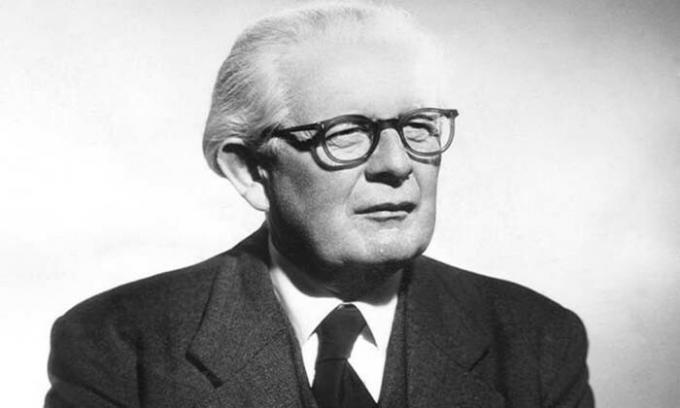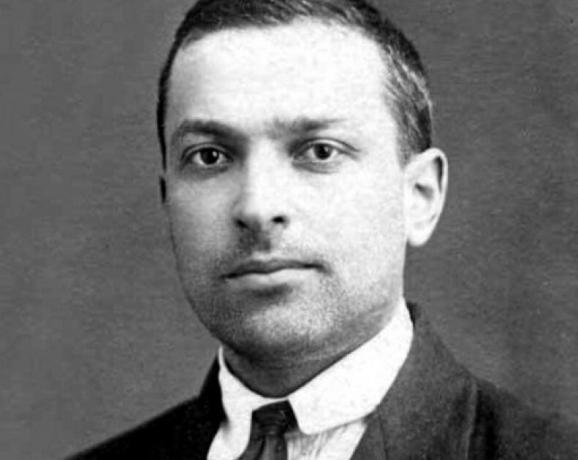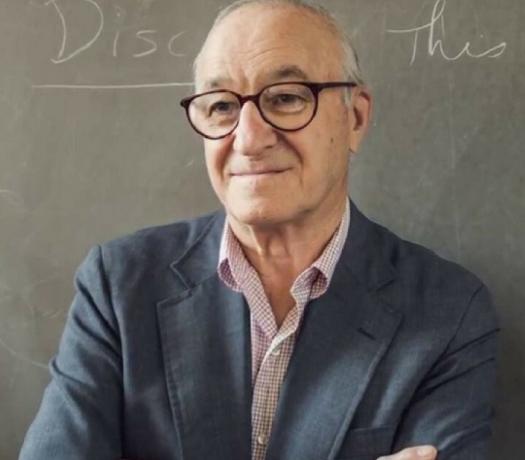Educational psychology: definition, concepts and theories
The psychology is responsible for scientifically studying human behavior and mental processes. There are several different sub-disciplines of psychology that focus their focus on a particular aspect of the psyche human, in order to better understand our behavior and provide tools to improve the well-being of each individual.
One of these sub-disciplines is educational psychology (also called educational psychology), which is responsible for delving into the learning and in the most suitable educational methods so that students can develop their cognitive habilyties.
Educational psychology: definition and object of study
Educational psychology is a subdiscipline of psychology that is in charge of studying the ways in which human learning takes place, especially in the context of educational centers. Educational psychology analyzes the ways in which we learn and teach and tries to increase the effectiveness of different educational interventions in order to optimize the process. It also tries to apply the principles and laws of social psychology to educational institutions and organizations.
In other words, the object of study of educational psychology is student learning and the different aspects that modulate their cognitive development.
Educational psychology to improve learning
In the school context, educational psychology investigates the best methods and study plans to improve the educational model and the management of the centers.
Its objective being the better understanding of the elements and characteristics that influence learning during the childhood, adolescence, adulthood and old age, educational psychologists are in charge of elaborate and implement different theories about human development that help to understand the different processes and contexts in which learning occurs.
Theories about learning
Throughout the past century, various authors proposed models and theories to explain how humans relate to knowledge. These theories have served to influence the approaches and methods used by educational psychology.
1. Jean Piaget's Theory of Learning

The Swiss psychologist Jean piaget (1896 - 1980) has had a decisive influence on educational psychology. His theory delved into the stages that children go through in relation to their cognitive ability, until they manage to develop abstract logical thinking around the age of eleven. It is one of the leading references in the field of developmental psychology.
More about Piaget's Theory of Learning by reading this article:
- "The Learning Theory of Jean Piaget"
2. Lev Vygostky's Sociocultural Theory

To what extent do culture and society influence children's cognitive development? This is the question the Russian psychologist asked himself Lev vygostky (1896 - 1934). Vygostky investigated the influence of the different social environments in which interactions take place that lead the child to assimilate and internalize some behavior patterns.
His concepts, such as that of “proximal development zone" and the "scaffolding learning”Are still valid.
Everything there is to know about Vygotsky's theory, in this summary:
- "The Sociocultural Theory of Lev Vygotsky"
3. Albert Bandura's Theory of Social Learning

Albert bandura (born 1925) also developed key concepts for the sociocognitivism and for educational psychology. Bandura analyzed the intimate relationship between contextual and social variables with learning processes. In addition, he was the author of concepts of great interest such as that of the selfconcept.
You can read more about his learning theory here:
- "The Theory of Social Learning of Albert Bandura"
Other theories and contributions
There are other theoretical constructs that have also contributed great knowledge to the field of educational psychology. For example, the theory of moral development by Lawrence Kohlberg and the child development model proposed by Rudolf steiner.
In addition to psychologists who contributed their grain of sand to educational psychology, it is also necessary to cite other authors and figures with a decisive weight and who sowed this subdiscipline with knowledge and reflections.
María Montessori: a paradigm shift
For example, the case of the Italian pedagogue and psychiatrist is noteworthy. Maria Montessori, which managed to lay completely new foundations in the pedagogy of the early twentieth century. Montessori removed the foundations of classical pedagogy by proposing a pedagogical method in which he presented four fundamental pillars for the education of students.
These four pillars on which any learning process is based are: the adult, the student's mind, the learning environment, and "sensitive periods" in which the child is more receptive to learning new knowledge or skills.
The role of educational psychologists
Educational (or educational) psychologists are responsible for analyzing the various characteristics of each student. This awareness of the individual differences of the students serves to try to enhance the development and learning of each of them, reflecting on the intelligence, the motivation, the creativity and the communicative skills, in other aspects
One of the keys: motivation
A motivated student is a much more receptive student to acquire new knowledge and skills. It is for this reason that motivation is one of the favorite fields of study of educational psychology. The motivation depends on the degree of interest that the teachings in the classroom arouse, the level of involvement of the student with the tasks that she must do. In addition, thanks to motivation, the student begins to acquire knowledge through significant learning.
Motivation does not refer only to the predisposition to learn in class, but rather has a crucial influence on the aspirations and goals of the people in their lives.
Disorders and difficulties associated with learning
Educational psychologists also have to deal with the problems that some students present in learning at the same rate as their peers. School-age children may have specific difficulties such as Attention deficit disorder and hyperactivity wave Dyslexia, what negatively affect cognitive aspects related to the learning process. It will be necessary for the educational psychologist, in agreement with the teachers, to plan a study plan adapted to these cases, trying to minimize the academic impact of these disorders or delays.
However, educational psychologists also play a fundamental role in detect and treat other problems of a non-specific nature. For example, clinical cases such as students with depressive, anxious, or any other type of affectation that requires individualized treatment and, in some cases, a curricular adaptation. Other psychosocial problems such as students affected by bullying They may also require the intervention of the educational psychologist.
Bibliographic references:
- Castorina, J.A. and Lenzi, A.M. (comps.) (2000). The formation of social knowledge in children. Psychological investigations and educational perspectives. Barcelona: Gedisa.
- Delval, J. (1994). Human development. Madrid: Siglo Veintiuno de España Editores.
- Dunn, J. (1993). The beginnings of social understanding. Buenos Aires: New Vision Editions.
- Kimmel, D.C. and Weiner, I.B. (1998). Adolescence: a developmental transition. Barcelona: Ariel.
- Pérez Pereira, M. (1995). New perspectives in developmental psychology. A critical historical approach. Madrid: Editorial Alliance.
- Pinker, S. (2001). The instinct of language. Madrid: Editorial Alliance.
